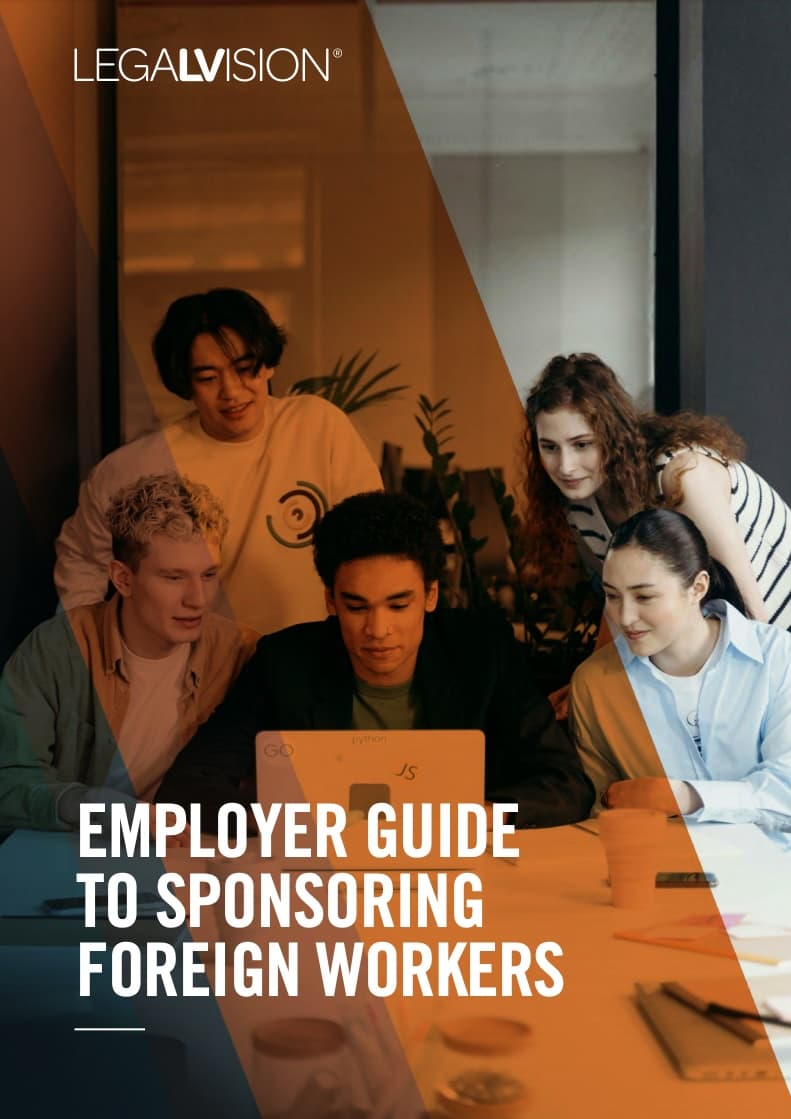If you have been granted permanent residence in Australia, you can settle in Australia permanently. However, you must be aware that you could still be subject to some restrictions regarding travel. Suppose you have left or wish to leave and re-enter Australia. If so, you may need to apply for a Resident Return Visa (RRV). This article will discuss when you may require an RRV, how to become eligible for it, and the visa’s characteristics once it is granted.
What is a Resident Return Visa?
Only Australian citizens have an automatic right of entry to Australia. Australian permanent residents can reside in Australia indefinitely. However, they do not have an automatic right of entry once their travel facility expires. A Resident Return Visa allows current or former Australian permanent residents to re-enter Australia.
Furthermore, suppose you left Australia as a permanent resident and have resided outside of Australia for a substantial period. In that case, you may be able to return as a permanent resident by applying for a Resident Return Visa and explaining the reasons for your absence and whether any compelling circumstances existed.
Suppose you are in Australia as a permanent resident and do not intend to travel internationally. In this case, you do not need an RRV.

Sponsoring overseas workers as an Australian business is complicated. Let us simplify it for you with this free employer guide.
Eligibility and Applying For a Resident Return Visa
To be eligible for an RRV, you must meet the following eligibility criteria.
- Be one of the following:
- an Australian permanent resident;
- a former Australian permanent resident whose last permanent visa was not cancelled; or
- a former Australian citizen who lost or renounced citizenship.
- Meet the residence or substantial ties requirements (one of the following).
| Type | Criteria | Likely grant period |
| Residence | You have been present in Australia for two years (730 days) in the last five years (from the application date) as the holder of a permanent visa (or permanent entry permit) or as an Australian citizen. | 5-year travel facility |
| Substantial ties | You are outside Australia and you: • have not been absent for five continuous years or more before the date of application (unless you have compelling reasons); • hold a permanent visa or last left Australia as a permanent resident or citizen (but subsequently lost citizenship); and • can demonstrate substantial ties to Australia that are of benefit to Australia. | 12-month travel facility |
| Substantial ties | You are outside Australia and you: • are not absent for five continuous years or more before the date of application (unless you have compelling reasons); • hold a permanent visa or last left Australia as a permanent resident or citizen (but subsequently lost citizenship); and • can demonstrate substantial ties to Australia that are of benefit to Australia. | 12-month travel facility |
| Residence and substantial ties | You are outside Australia and you: • have not been absent for five continuous years or more before the date of application (unless you have compelling reasons); • hold a permanent visa or last left Australia as a permanent resident or citizen (but subsequently lost citizenship); and • can demonstrate substantial ties to Australia that are of benefit to Australia. | 12-month travel facility |
| Family member | You are a member of the family unit of a person who already holds an RRV or has lodged a separate application for an RRV and meets the time of application criteria for the grant. | 12-month travel facility |
Other Considerations
When calculating dates, the date of your arrival and the date of your departure both count toward days in Australia. If the applicant arrives and departs on the same day, this will only count as one day. Similarly, if a visa expires and the applicant receives another on the same day, this will count as one day. A part-day spent in Australia by a permanent visa holder is counted as a full day.
To demonstrate substantial ties, you must show your ties are substantial and of benefit to Australia. For example, these may include business, cultural, employment and personal ties.
- You must not hold a Transition permanent visa (from being issued an Authority to Return or a Return Endorsement in the past).
- You must meet character requirements.
- You must not have cancellations on any business skills visas (subclasses 132, 840-846, 188, 160-165, 888).
- You must not have previous visa cancellations or refusals.
Applicants can apply for RRVs from inside or outside Australia as long as they are not in ‘immigration clearance’. You can apply online via ImmiAccount or in paper form. Moreover, you can apply for this visa as a temporary visa holder as long as you meet the other criteria.
If you meet the residence criteria, your visa will likely be processed more quickly than if you are trying to demonstrate substantial ties.
Continue reading this article below the formCall 1300 544 755 for urgent assistance.
Otherwise, complete this form, and we will contact you within one business day.
What Happens After I Am Granted a Resident Return Visa?
After you receive a Resident Return Visa, you can travel and return to, or simply re-enter, Australia as a permanent resident within the travel facility period indicated on your visa grant letter. After that period expires, you will need another RRV to continue travelling outside Australia or re-enter Australia as a permanent resident. There is no limit on how many RRVs you can obtain. However, consider Australian citizenship as an option to avoid this ongoing requirement.
Key Takeaways
As an Australian permanent resident, you do not have an automatic right of entry to Australia once your travel facility expires. You may need a Resident Return Visa to return to Australia and retain your permanent residence status. You must demonstrate that you meet the criteria, including that you can meet the ‘residence’ or ‘substantial ties’ requirements. Once granted, you can continue to re-enter Australia as a permanent resident within that travel facility period indicated in your visa. When this expires, you can ongoingly apply for RRVs as there is no limit. Alternatively, you can apply for Australian citizenship, giving you an automatic entry right to Australia.
Frequently Asked Questions
A Resident Return Visa is a visa that allows current or former Australian permanent residents whose travel facility has expired to re-enter Australia and retain their permanent residency status. Check your permanent residence visa grant for your travel rights, as you do not want to risk losing your permanent residency status or having your travel facility expire.
You may require a Resident Return Visa if you are an Australian permanent resident wanting to travel outside Australia, your travel facility has expired, and you wish to re-enter Australia as a permanent resident. Similarly, you will require it if you are a former Australian permanent resident whose last permanent visa was not cancelled and you wish to re-enter Australia as a permanent resident. Lastly, you will require the visa if you are a former Australian citizen who lost or renounced Australian citizenship and wish to re-enter Australia as a permanent resident.
We appreciate your feedback – your submission has been successfully received.












